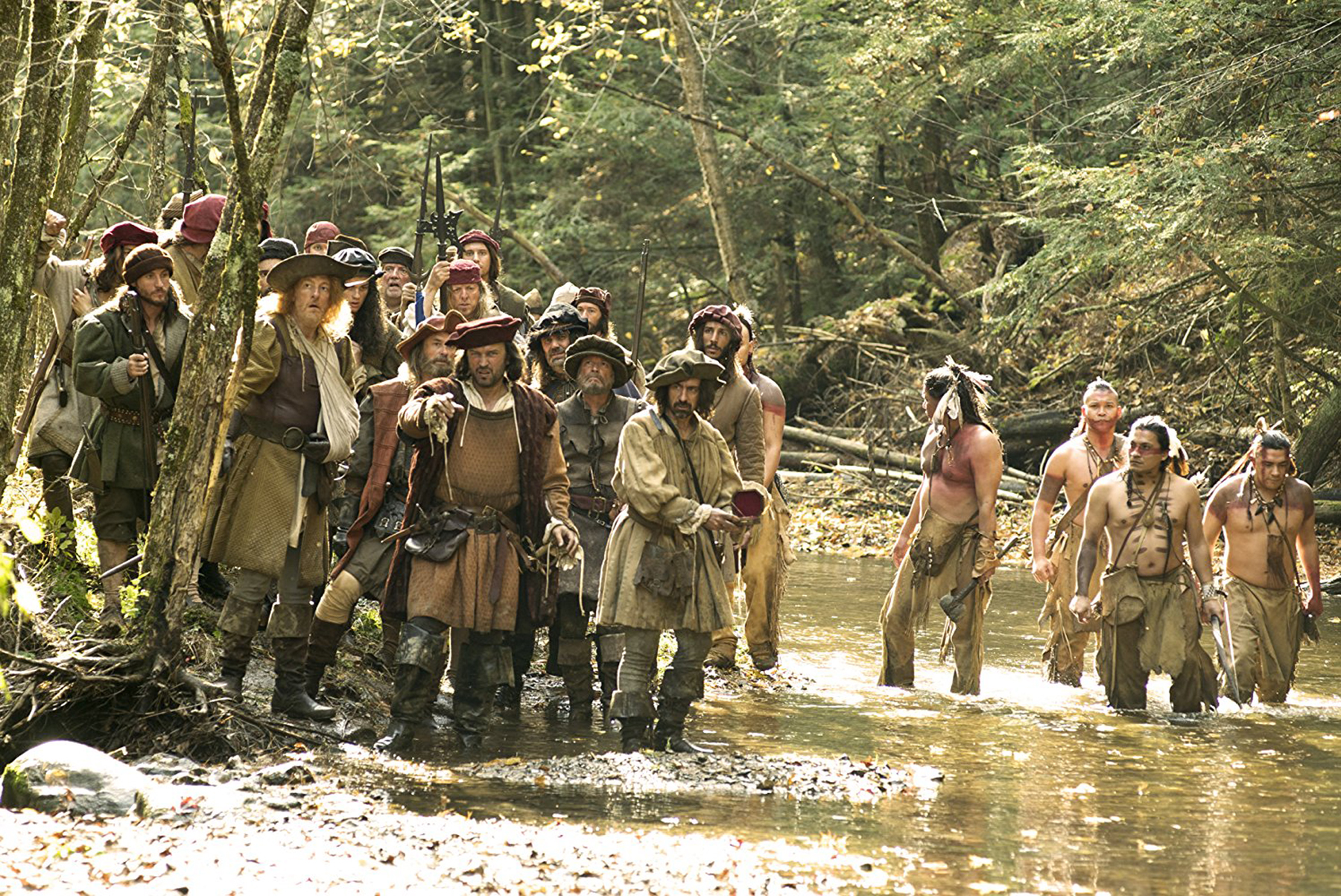
- Golden Globe Awards
Hochelaga, Land of Souls
Montreal might turn 350 in the minds of most Canadians, but French-Canadian director François Girard’s Hochelaga, Land of Souls shows that the history of their land is much more complex than that. The opening of the film shows the aftermath of a 13th-century battle in which many Natives died. It quickly moves on to a present-day football match where a star player is swallowed up by a sinkhole and dies in front of a stadium full of fans. “The film is not specifically about First Nations,” says Girard about his sixth feature film. “I’ve made the film about my roots. I dug a hole in the land to see who was there before me, or before us. And, as one would expect, among other cultures, I found the first nations from whom we learned so much.”The two narrative strands, the past and the present, are soon linked in the film: an academic (Gilles Renaud) sees the tragic event at the stadium as a chance to create an archeological site. The location has long been believed to be the key to the city’s history, and a student of Mohawk heritage, Baptiste (Samian), is thus offered the task to explore this. “The archeological investigation (…) serves as an entry point to all possible stories,” says Girard. “It is the device by which we can access all those who occupied the land.”The film dramatizes several centuries of Quebec history focused on the history of Montreal. “This is a way of saying that a lot happened before the European showed up in the Americas. As for the choice of the various periods and stories, they chose me more than I chose them. I’ve put my ear to the ground and I listened.” Hochelaga, Land of Souls is a tribute to Canada and the ancestors who were there before our time – like the various occupations, from the Iroquians and the Algonquins. And it is a reminder of the long history of the land. “Canadians, like most contemporaries, have forgotten too much. We live in an era obsessed with the now. New technologies keep us captive of the present time and keep us from seeing the broader picture of who was there before us.”Girard grew up in Montreal and lived most of his life here, but this is the first time he explores his homeland: “It is the most personal of all my films. For some weird reason, I’ve filmed all over the world but never filmed my hometown of Montreal and suddenly I felt a great need to show my place, my world. I would like to think that my movie is very accurate historically. But here, history serves as a backdrop to a number of fictional stories and characters. The film is not quite a historical piece. It is a poem that connects characters from different eras who occupied the same land. For me, this work is more spiritual than historical. But there was a lot of effort spent at making sure I wasn’t betraying historical realities.”

